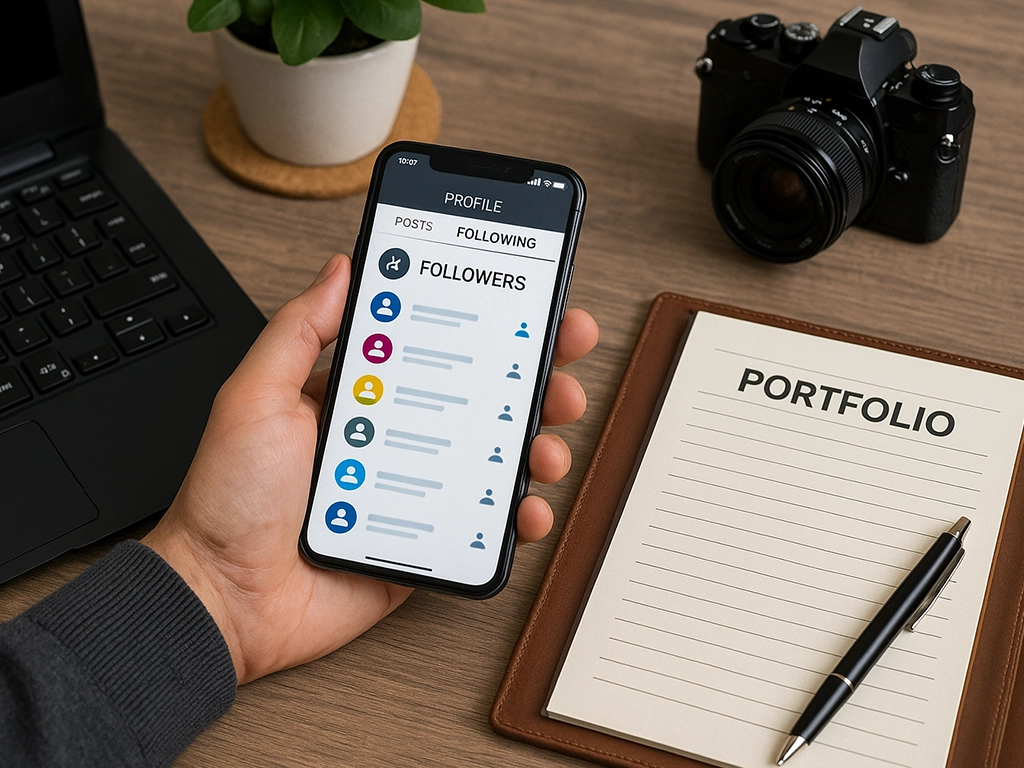In today’s fast-evolving media landscape, the job of a journalist extends far beyond traditional reporting. Whether you’re a seasoned reporter, a rising photojournalist, or a multimedia storyteller, your visibility, credibility, and career growth now hinge heavily on something that previous generations didn’t have to consider: your personal brand.
More than just a buzzword, your personal press brand is how you are perceived as a professional-by editors, readers, collaborators, and even algorithms. It represents your values, expertise, style, voice, and consistency across every channel you use: social media, online portfolios, public appearances, and even the way you respond to emails.
This article is your detailed roadmap for building a resilient and recognizable brand as a media professional in 2026 and beyond. It includes practical strategies, real-world examples, common mistakes to avoid, and how the United States Press Agency (USPA) can help you solidify your reputation as a trustworthy, visible, and independent press voice.
Why Personal Branding Is Now Essential in Journalism
The rise of digital-first journalism, the gig economy, and decentralized publishing platforms has disrupted the traditional model of employment and career progression in media. Journalists can no longer rely solely on their employer’s reputation to open doors. In fact, many professionals are now brands within brands-freelancers with followings, staff writers with blogs, photographers with viral portfolios.
Whether you’re pitching a feature, trying to book an interview, or applying for a grant, your personal visibility matters. It speaks before your pitch ever arrives in an inbox.
Why it matters now more than ever:
- Freelancers are their own marketers. A well-positioned brand increases your rate of success in pitching stories, securing sponsorships, or booking assignments.
- Editors vet you online. Many editors will Google your name before they read your article pitch.
- Audiences follow people, not just outlets. They want to connect with journalists who are authentic, ethical, and consistent across platforms.
- Opportunities come from recognition. Invitations to speak, teach, write books, or join exclusive programs often arise from being visible and respected in your field.

Foundations of Your Press Brand
Building your personal brand doesn’t mean becoming an influencer-it means being intentional, consistent, and credible in the way you present your work and engage with others.
- Define Your Identity
Start by asking yourself:
- What topics am I passionate about?
- What values guide my reporting?
- How do I want people to describe my work?
Your brand is the intersection of your voice, your expertise, and your audience. It’s okay to be multifaceted-but clarity builds trust.
- Choose Your Niche (or “Beat”)
Specialization helps editors and audiences understand what you stand for. Whether it’s investigative reporting on social justice, international conflict, climate change, or culture, a focused beat can help you stand out.
But don’t worry if you’re still exploring. Many successful journalists started broad and developed a niche over time.
Build Your Digital Portfolio
A personal website is more than an online CV-it’s your digital home base. Here’s what it should include:
Key Elements of a Strong Portfolio Site:
- Professional Bio: A concise summary of your career, values, and niche.
- Contact Info: Make it easy to reach you-include email and links to your social media.
- Published Work: Curate 10–20 strong examples in different formats.
- Visuals: Headshots, action photos, or behind-the-scenes work to show your personality.
- Press Card & Credentials: Include your USPA card or verification to build credibility.
Make sure your website is mobile-friendly and loads quickly. Tools like WordPress, Squarespace, or Webflow are excellent for non-coders.

Develop a Strategic Social Media Presence
Social media is no longer optional for journalists-it’s a powerful tool for networking, sharing stories, and engaging with readers. But it’s also a double-edged sword. Poor use can damage your credibility.
Choose the Right Platforms:
- X (formerly Twitter): Real-time news, discussions, source-finding
- Instagram: Visual storytelling, photo essays, field reporting
- LinkedIn: Professional updates, networking with editors or NGOs
- TikTok or YouTube: Explainer journalism, media literacy, behind-the-scenes reporting
Tips for Journalists on Social:
- Use your real name or a clear professional handle.
- Pin a bio post or your portfolio link.
- Post consistently-but not compulsively.
- Use Stories or Reels for quick, digestible content.
- Respond professionally to comments and questions.
- Avoid heated political debates unless it’s your beat-and even then, do so carefully.
A strong social media presence doesn’t mean being viral-it means being valuable and visible in your niche.
Grow Your Visibility Ethically and Effectively
Visibility is built through thoughtful engagement-not self-promotion alone. Here’s how to grow your reputation in authentic ways:
- Get Published (and Republish)
Pitch to local, independent, or niche outlets that align with your beat. Then reshare that work across platforms. Use your USPA credentials to lend legitimacy when approaching new editors or interview subjects.
- Collaborate and Cross-Promote
Partner with fellow journalists or photographers for joint projects. Tag each other on social media. Consider collaborative newsletters or Instagram takeovers.
- Contribute to Communities
Be active in forums, comment sections, and professional groups. Share helpful tools, resources, or behind-the-scenes insight. The more you give, the more trust you build.
- Teach and Speak
Host webinars, speak on panels, or run online workshops. These not only boost your profile but help reinforce your niche expertise.
- Submit for Awards or Fellowships
Recognition by peers strengthens your professional identity. Include awards and fellowships on your site and in your media kit.
Manage Your Reputation
Reputation management is not just about avoiding scandal-it’s about staying consistent and being intentional.
Tips for Staying Credible:
- Own your mistakes: If you make an error, correct it publicly and respectfully.
- Maintain boundaries: Decide what you share personally vs. professionally.
- Keep politics in check: Unless you’re a columnist, avoid partisan fights online.
- Protect your digital identity: Use two-factor authentication and protect your accounts from impersonation.
- Avoid overuse of AI: Disclose when tools like ChatGPT or DALL·E are involved in your work.
In journalism, your name is your resume. Protect it.
How USPA Supports Your Press Brand
The United States Press Agency understands the power of visibility in modern journalism. That’s why membership includes tools and recognition to support your personal press brand.
Benefits for Members:
- Verified USPA Press ID: Adds legitimacy when pitching, interviewing, or traveling.
- Digital Badge and Certificate: Perfect for your website, LinkedIn, or email signature.
- Professional Directory Listing: Get found by editors, collaborators, or event organizers.
- Media Training Resources: Guides on branding, pitching, social ethics, and legal protection.
- Brand Protection Tips: Learn how to respond to impersonation or unauthorized use of your name or work.
USPA helps bridge the gap between being a freelancer with talent and a recognized press professional with reach.
Common Mistakes to Avoid
Let’s round this out with a few avoidable pitfalls:
- Neglecting updates: An outdated portfolio signals disinterest.
- Inconsistent messaging: Using different bios, photos, or usernames confuses editors.
- Overpromoting: Constant “Look what I published!” posts can alienate followers.
- Poor engagement: Ignoring comments, feedback, or peers reduces your credibility.
- Unverified claims: Sharing unconfirmed stories can erode trust permanently.
Conclusion: You Are Your Own Brand Manager
In the age of digital platforms, algorithmic visibility, and AI-generated content, your personal brand is your professional foundation. It’s how people find you, trust you, and work with you.
By building a consistent digital presence, aligning your voice with your values, and maintaining professional integrity, you can stand out-not just as another journalist-but as a trusted, respected voice in an era of noise.
Don’t just publish stories.
Become the journalist people trust to tell them.
And remember: USPA is here to help you do it-with credentials, community, and credibility.
